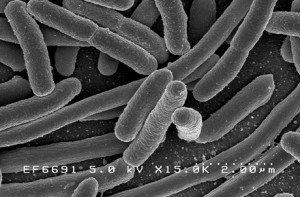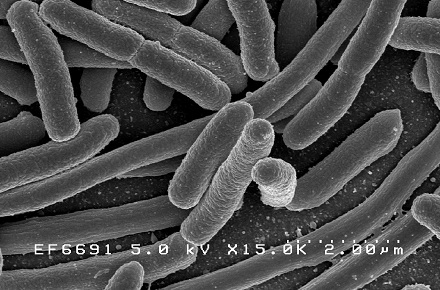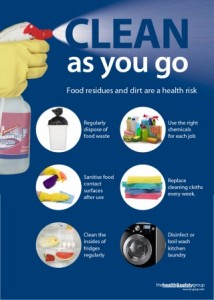The Food Standards Agency is reminding people across the UK of the importance of following good food hygiene practice, and what to do if they go down with food poisoning.
 |
| [relatedPosts title=”Related Posts”] |
|
|
The update is prompted by the current outbreak of E.coli O157 in Belfast. The Food Standards Agency is working closely with the Public Health Agency and other authorities in Northern Ireland on the ongoing investigation into the outbreak.
Latest Update from the Public Health Agency
The Public Health Agency (PHA) and Environmental Health Officers from Belfast City Council are continuing to investigate an outbreak of Escherichia coli (E. coli) O157 linked to Flicks restaurant in Cityside Mall, 100-150 York Street, Belfast.
There are various types of E.coli O157 and the PHA has confirmed that the type of E. coli O157 in cases in October is different from the type found in August cases associated with the same restaurant. These results are from a first phase of typing tests which showed the cases in August to be Type 8. The confirmed cases in October are Type 54. It is too early to draw definitive conclusions at this stage.
The four cases of E. coli O157 in August which were linked to this restaurant were investigated thoroughly at the time. All tests on the restaurant were negative. In addition, further environmental health inspections were conducted, all of which were satisfactory, and enhanced surveillance to monitor for cases was also put in place. The current cases came to light through that enhanced monitoring.
Furthermore, there were no cases of E. coli associated with Flicks restaurant in the six week period between the end of August and 9 October.
E.coli: Environmental Health Issues of VTEC 0157 – Available from £92.17
Managing Food Safety – Available from £30.50
Hygiene for Management – Available from £19.95
When a possible case was notified on 9 October, PHA and Environmental Health Officers again responded immediately and took all necessary steps. This resulted in the voluntary closure of the restaurant; if the restaurant had not closed voluntarily, it would have been required to close.
As of 3pm on Monday 22 October 2012, there were 98 confirmed cases and 175 probable cases. The increase in confirmed cases over recent days is not unexpected and is as a result of probable cases becoming confirmed following testing. The number of probable cases appears to be levelling off as fewer new reports are coming forward.
Dr Carolyn Harper, Director of Public Health, PHA, said: “The PHA has activated a full public health response to this outbreak and the situation is being managed and monitored very closely.
“We continue to meet daily with colleagues at Belfast City Council to share information and results and are working with the Council and Food Standards Agency to ensure this investigation progresses steadily. We are also liaising with the Health Protection Agency regarding typing and other specialist advice.
“It is vital that everyone follows some simple rules to prevent the spread of E. coli – not just those with symptoms, but everyone should wash their hands after using the toilet and before eating or preparing food. Raw and cooked food should be kept completely separate, raw meat should be cooked through and vegetables and fruit should be washed thoroughly before eating. People with vomiting or diarrhoea should remain at home and not prepare food – this is good advice even in non-outbreak situations.”
Investigations are continuing and final conclusions will emerge when all cases have been identified and analysed to identify any common links.
The management of Flicks are cooperating with the investigation.
The PHA has advised that anyone who ate at Flicks restaurant since 24 September and has symptoms of diarrhoea (especially bloody diarrhoea) and/or abdominal pain should contact their GP urgently for medical advice.
Dr Harper explained: “Escherichia coli bacteria are commonly found in the intestines of humans and animals. There are many different types of E. coli, and while some live in the intestine quite harmlessly, others may cause a variety of diseases. The bacterium is found in faeces and can survive in the environment.
“Symptoms caused by E. coli O157 can include diarrhoea, which can range from mild to profuse watery or bloody diarrhoea, tummy cramps, nausea or vomiting.”






